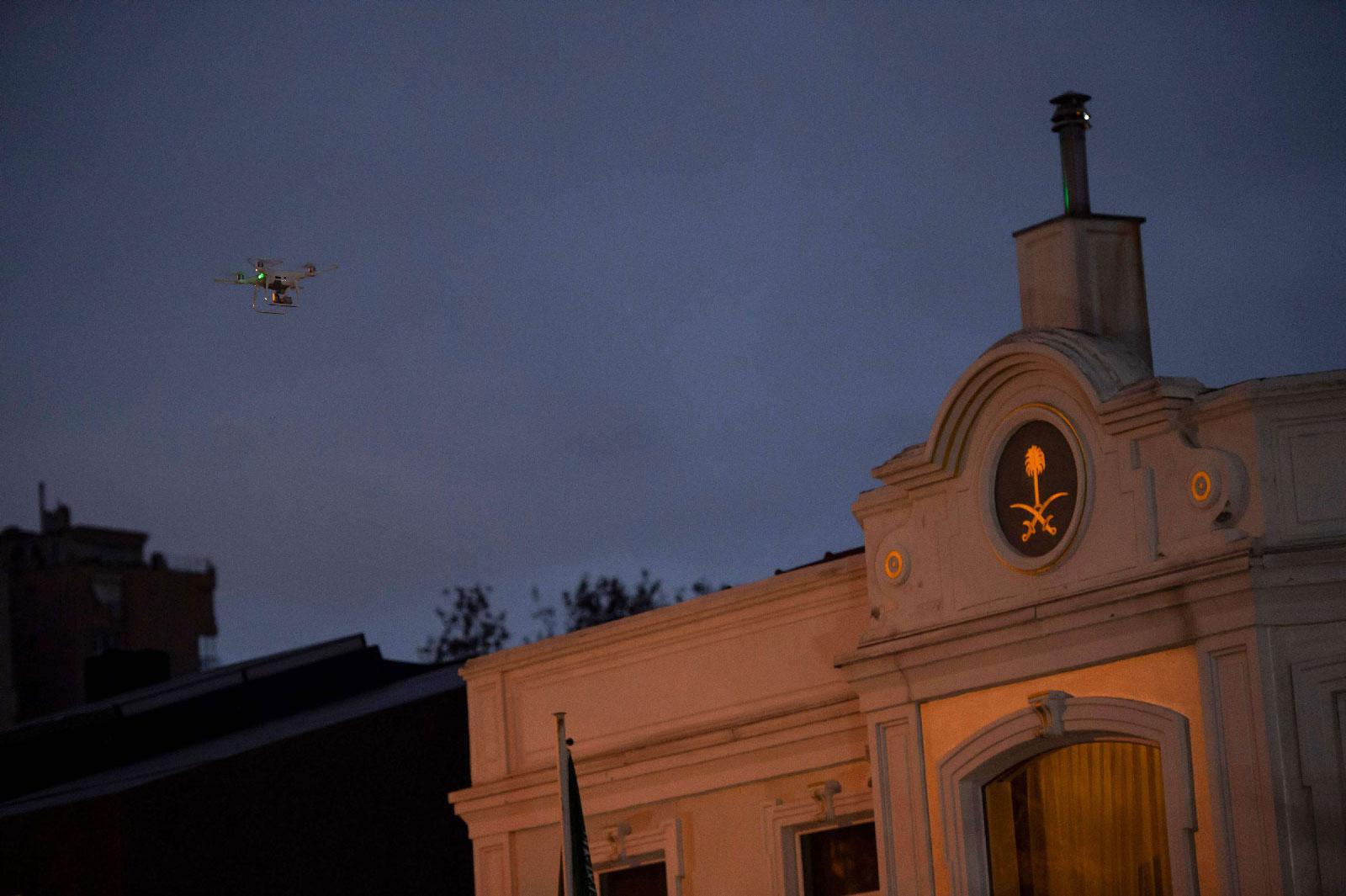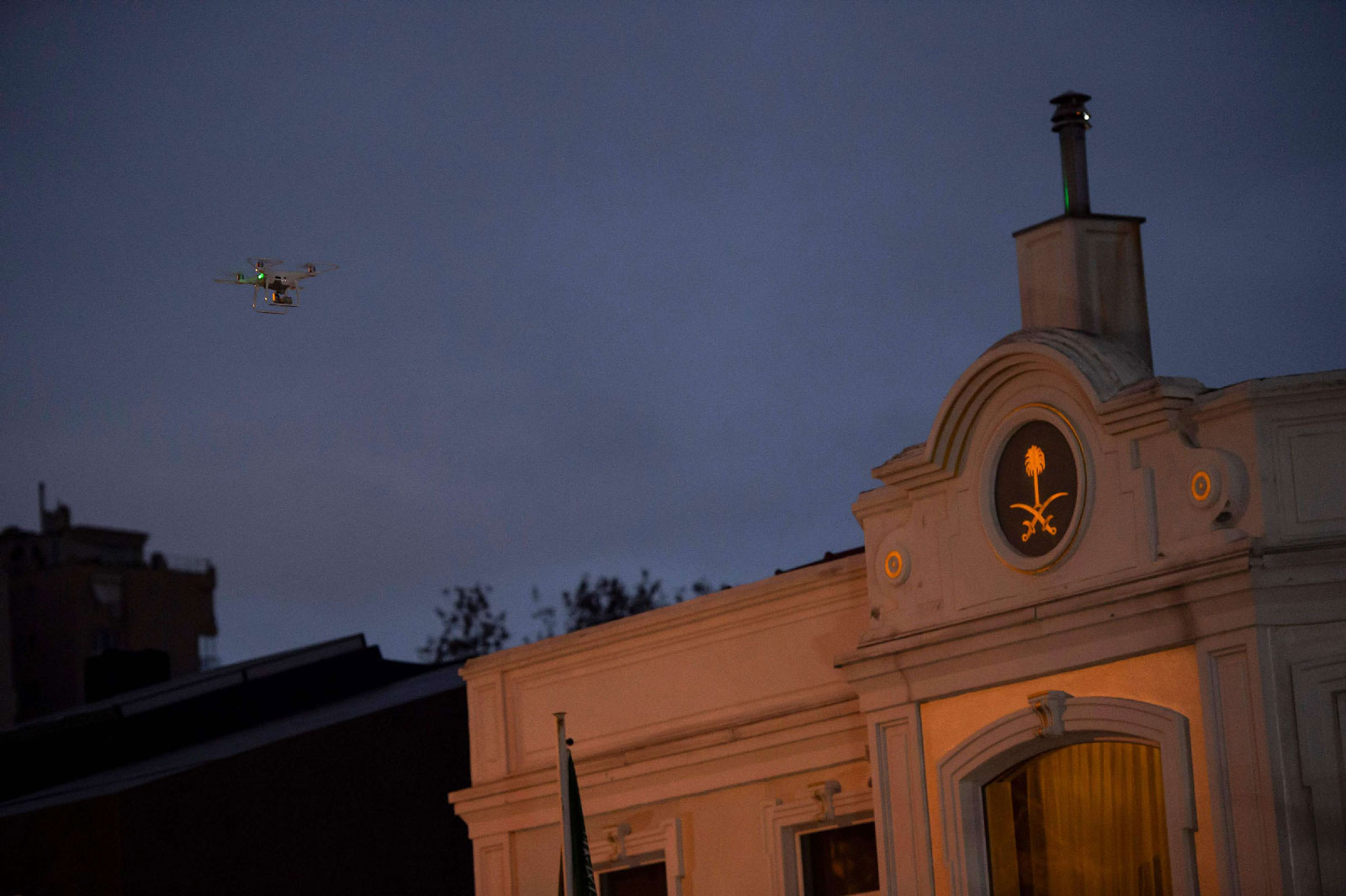Turkey has a culture of surveillance, intrigue
LONDON - Not a day passes without pro-government Turkish media -- and at times some US newspapers and TV channels -- releasing pictures and videotapes purporting to lend credence to the Turkish version of the sequence of events since the disappearance of Saudi writer Jamal Khashoggi, last seen entering the Saudi Consulate in Istanbul on October 2.
Since then, Turkish officials have sought, through leaks, to indicate that Khashoggi was tortured and killed in the consulate. The official Saudi position is that Khashoggi died in a brawl that erupted immediately after he entered the premises.
Contrary to speculations, Turkish President Recep Tayyip Erdogan did not use any audio or video tapes to buttress his first direct accusations to Saudi Arabia during a speech he delivered on October 23 and where he was supposed to divulge the "naked truth" about the case.
Whether or not recordings of Khashoggi’s death exist, the reports have added to tales of intrigue and surveillance in Turkey, a country where wiretapping and camera surveillance clearly do not spare diplomatic representations.
This has come as no surprise in Turkey, where scandals erupt from time to time and where the government closely monitors the internet, banning websites and targeting critics deemed threats to national security.
The examples from the history of spying in Turkey abound. Since an attempted coup in 2016, Turkish authorities have extended monitoring of digital and other communications.
As part of a crackdown on suspected coup plotters, security forces rounded up many people accused of using ByLock, an encrypted mobile messaging application. ByLock was allegedly used by the network of US-based cleric Fethullah Gulen, who denies Turkish allegations that he was behind a coup attempt.
Some Western governments and human rights activists said the crackdown went too far, rounding up opponents of the government who had done nothing wrong or even people with no strong political affiliation.
Recent Turkish media reports suggest the Turkish government's Directorate of Religious Affairs (Diyanet) gathered intelligence via imams and other employees in 38 countries on the activities of Turks suspected of supporting Gulen.
Diyanet reportedly requested its branches abroad submit their findings before the Eurasia Islamic Council in October 2016.
Those findings were then reportedly submitted to the "Coup Commission" of the Turkish parliament and allegedly included photos of people being spied on by mosque employees hired by Diyanet and detailed information on schools, companies, associations, foundations and media outlets supposedly linked to the Gulen movement, which the Turkish government has since labelled the "Fethullahist Terrorist Organisation."
In September, German authorities said they were investigating allegations that a police officer passed information to Turkish intelligence about Turkish opposition supporters living in Berlin.
The Berlin daily Der Tagesspiegel reported that German security authorities suspect the officer of giving information on exiles’ addresses to a Turkish Embassy employee. The allegations came as Turkish President Recep Tayyip Erdogan visited Germany.
In 2014, a recording of then-Foreign Minister Ahmet Davutoglu and top security officials talking about possible military action in Syria was leaked on YouTube, in what appeared to be an attempt to undermine the government ahead of local elections.
Suspicion fell on Gulen supporters alleged to have key positions in the police, judiciary and other state institutions.
In 2013, recordings of phone conversations supposedly involving Erdogan, who was then prime minister, as well as cabinet ministers and top officials were posted on the internet amid an investigation of alleged government corruption.
Erdogan denounced the recordings as fabrications aimed at discrediting him and said they were part of a "coup attempt" by people loyal to Gulen, who was once allied with the prime minister but later became a critic.
In 2011, ten opposition politicians in Turkey quit after the release of grainy, black-and-white videos appearing to show senior members of the Nationalist Action Party, a hard-line nationalist group, in liaisons with women who were not their wives.
The smear campaign was just before elections won by Erdogan's ruling Justice and Development Party. Suspicions of who was behind it ranged from disgruntled opposition party insiders, to supporters of the government, to an alleged gang of coup plotters with shadowy links to state agencies.
In 2010, Deniz Baykal, the long-time leader of Turkey's main opposition party, was forced to resign after the release of a video purportedly showing him in a hotel bedroom with a woman who was also a member of the Republican People's Party. Both were married at the time.
Baykal said he was targeted in a conspiracy, although who obtained the alleged sex video was never publicly clarified. Some political commentators argued that the party benefited from Baykal's exit because it cleared the way for fresh leadership.
In 2007, Turkey passed a law to regulate the internet, allowing the banning of thousands of websites and periodic blocking of access to Twitter, YouTube and other sites.
Social media came under increasing government scrutiny in 2013 after demonstrators used it to organise the Gezi Park protests that turned into a flashpoint for anti-government anger.



